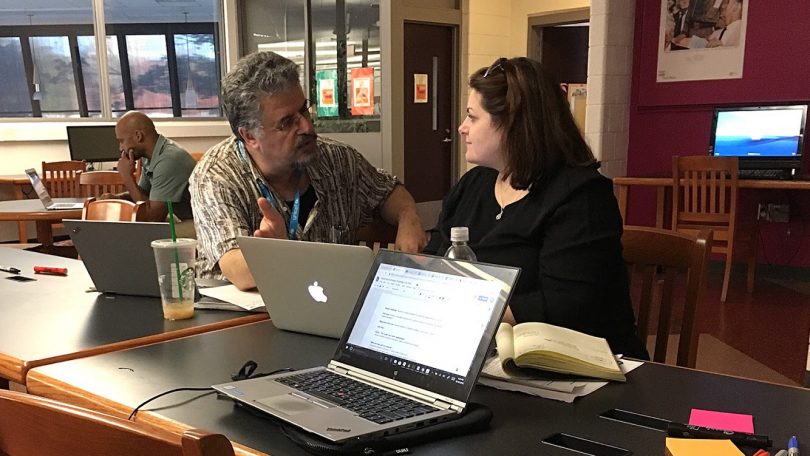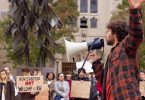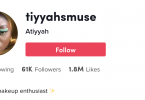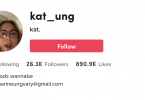By Charlie Scanlan
BU News Service
CAMBRIDGE — When literacy coach Angie UyHam returned from her eight-month sabbatical on the West Coast in 2016, she was itching to create something new for Cambridge Public Schools.
“When I came back, I had a lot of colleagues and friends who felt like the status quo was still the status quo, who felt disengaged as educators or as changemakers,” UyHam said.
UyHam sought guidance from “thought partners” at the Agenda for Children, a youth social services organization, and the Center for Artistry and Scholarship, an education nonprofit. Together, the “tripod” of innovators designed an initiative that would allow the community to solve problems within the school system, like creating mentorship programs for new high school students.
The Design Lab is an opt-in program for students and educators to develop their own projects with the support of the staff and each other, UyHam – who is now paid half-time as an “Innovation Coach” – explained. Funded by the district and independent fundraising efforts, it offers a series of after-school workshops in the Teacher Resource Center of Cambridge Rindge and Latin School. UyHam and Agenda for Children’s Khari Milner guide teachers and students of all ages through the process.
Participants start by identifying a need to be met in the school community —for example, a lack of outdoor equipment at recess— then come up with a potential solution. The solution is broken down into steps such as interviewing those who would benefit from it and researching how it could be implemented. Throughout the workshops, participants can give each other feedback and suggestions. At the end of the sessions, the goal is to have a concrete proposal and plan of action for addressing the issue.
UyHam calls the process of developing a solution a “design challenge.” Past design challenges have sparked new ideas. For example, a group of students who participated in one Design Lab workshop applied their knowledge to the Young People’s Project math literacy work in Cambridge and Boston.
“This is what the Design Lab does, it helps you develop your idea,” said Ibrahim Dagher, an Arabic teacher at CLRS. He was the first to arrive for a recent afternoon workshop, eager to continue his project.
“It’s very interesting and unique, in a way, because its approach is not only about the substance of the project you’re trying to achieve, but also about how you get there,” he said.
UyHam runs the lab like a classroom, with a well-planned structure and curriculum that includes regular assignments. Surrounded by bookshelves and desktop computers in the library-like Teacher Resource Center, teachers said they are transported back to their high school days of group projects and homework assignments. UyHam takes on the role of teacher and mentor, providing suggestions and support for all participants.
The workshops are open to teachers, students, and other educators, so each cohort has a wide range of ages and experiences. From the beginning, one of UyHam’s main goals was to encourage diversity among designers, she noted.
“The more diverse folks you have at the table for the design process, the more it’s community driven design,” UyHam said. “Those closest to the design, those that are most affected by the design solution, should be the primary designers of the solution.”
UyHam explained that the Design Lab always intended to include students as equally capable designers.
“Often our power structure keeps certain folks in power as decision-makers and neglects to include others,” UyHam said.
Other teachers, like Sharon Lozada, welcome the opportunity to work with students as equals.
“Having [students] here reminds us that this is why we teach,” said Lozada, who teaches a variety of classes at CRLS, including a peer leadership course. “If they’re in front of us reminding us and keeping it real with us, it makes us do better work.”
Though UyHam struggled at the beginning with no funding, no official job title, and no physical space for the workshops, the Design Lab is now a part of Cambridge Public Schools’ three-year district plan. As he noted in a recent Cambridge Chronicle column, Superintendent Dr. Kenneth Salim extolled the program, writing: “I would argue that some of the most important innovation taking place today is happening inside our public schools classrooms.”
“It’s new, we’re learning, we’re excited about it,” UyHam said. “If you have a way to contribute and you want to contribute, we’re open.”
Community members are invited get involved. If you are interested in learning more about the Design Lab or joining a future workshop, you can visit the Design Lab website for more information.





